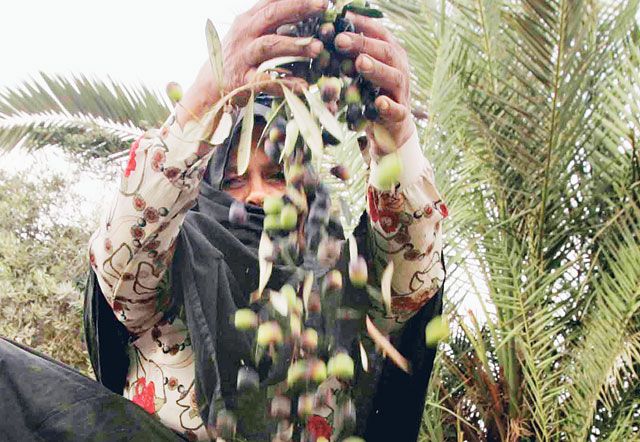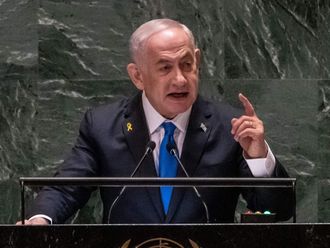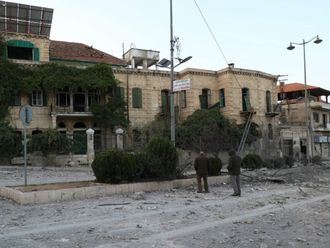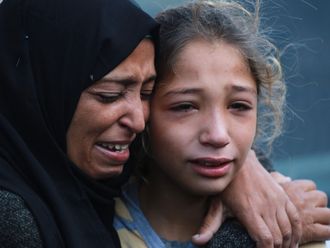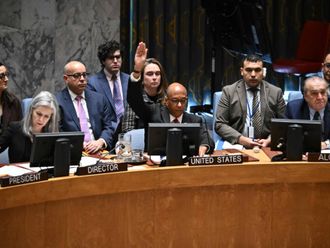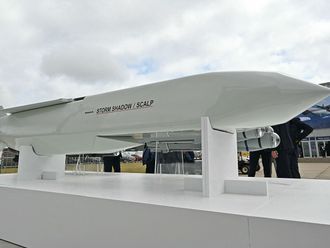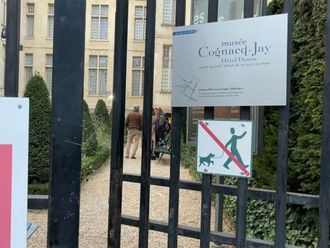Gaza City: As Abu Mohammad looks at what remains of his olive trees in the fields bordering Israel, he considers himself lucky when compared to his neighbours.
While half of his land in Beit Hanoun was destroyed by Israeli forces in the last war, farmers next to him have nothing left.
"Last year I collected four times more olives than I did this year," the farmer said. "This season I can barely cover the expenses. In the 40 years I've been working in the fields I had never had a season as bad as this one."
For Abu Mohammad and all other Palestinian farmers, this time of the year, between mid-October and the end of November, is the cherished olive harvest season. It is the major, if not the only, source of income for thousands living in the occupied territories.
For long, the olive tree has not only symbolised stability and resistance to Gaza's farmers, but it has also brought in a good income.
Palestinians depend on this indigenous tree for food. Olive oil can be put to a number of uses and plays an important role in traditional soap production. Logs are used for heating in winter.
This season has been particularly depressing for farmers in Gaza.
"Olives mean everything to me, they mean life," Abu Mohammad said.
"Most of the olive trees are the same age as me, and some trees are older.
"I remember when Israeli bulldozers uprooted my olive trees and destroyed my land. I was really sad, as if I lost my family.
"Since then we have been living in a very hard situation. Now, with the Israeli blockade, the situation is getting more difficult as everything is very expensive and I am afraid that people won't be able to afford olives because people in Gaza have no money."
With his land just next to the Israeli border, Abu Mohammad risks both his and his family's life just to harvest the olives.
"It's difficult for me and my family to go and pick our crop because it's so dangerous, they will shoot on us for sure if we went beside the borders, so I have to work in just a part of my land," he said.
Easy target
Most olive orchards are in the eastern and northern sides of the Gaza Strip close to the Israeli borders, making the trees an easy target in the January war and in the months that followed.
Even before, the agricultural sector in Gaza was severely affected by the ongoing incursions by the Israeli army.
Since the outbreak of the Palestinian Intifada in 2000, 112,000 olive trees have been destroyed in the Gaza Strip by the Israeli military.
According to statistics from the Palestinian ministry of agriculture, more than 4,000 donoms (1 donom is 1,000 square metres) with 13,000 olive trees were destroyed by the Israeli army during the last war on Gaza.
Hassan Abu Ateah, the under secretary at the ministry of agriculture, said: "We didn't expect the crop to be this bad, the olive crop was so weak this year and this will affect the price of olives since there are not enough quantities to meet the people's demand."
Weather
January's destruction is not the only reason for the decrease in production. The inclement weather worked against the harvest, and this is also known as a resting year for olive trees. Every two years, trees yield half as much as they yield normally.
Added to that, the Israeli siege means that necessary farming equipment is banned from the Gaza Strip.
"We used to import olives from the West bank whenever we faced a shortage in our production, but this year's shortage is so big that we will allow imports from anywhere, even from Israel," the agriculture under secretary said.
Since the Palestinian economy depends mostly on farming and agriculture, the Hamas government in Gaza is trying to solve the problem by planting new olive groves and offering them to farmers in a bid to sustain the industry.


